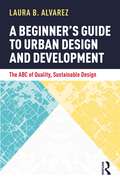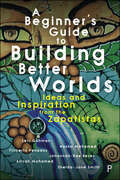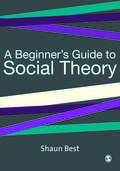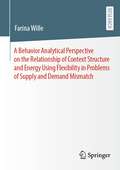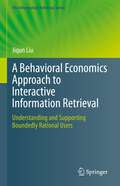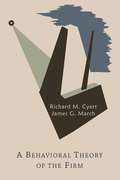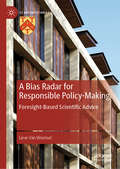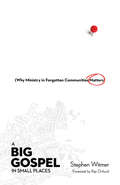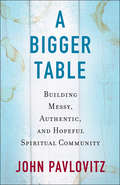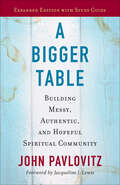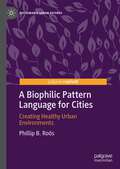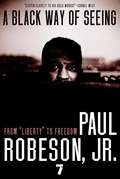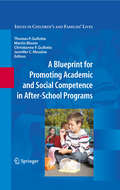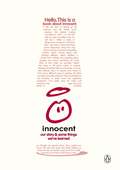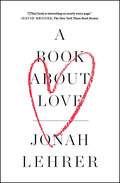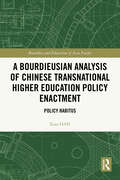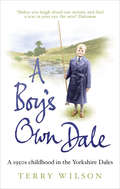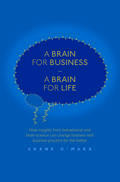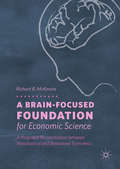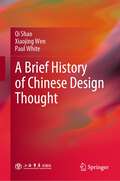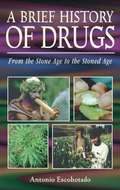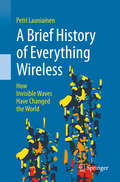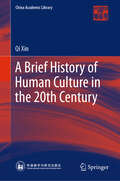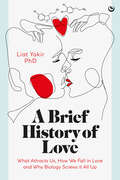- Table View
- List View
A Beginner's Guide to Urban Design and Development: The ABC of Quality, Sustainable Design
by Laura B. AlvarezThis book provides invaluable guidance to all those with an interest in placemaking and the built environment, from those with no experience to those who have worked for many years in industry, illustrating key principles that will secure higher quality, more sustainable design in accessible, jargon-free language. The author explains the design process in a straightforward way, exploring the different roles and highlighting the opportunities and limitations different agencies have to influence design over the various stages of the process. Examples from the UK and worldwide look at how the system operates and how best practice can make a real difference on the ground. Case studies examine situations where quality or sustainability fell short – and how this could have been avoided. This book also showcases a variety of evaluation tools, explaining how they operate, and giving guidance on how to create project-specific tools to drive schemes forward. With community empowerment at its core, the book explains technical language and shares bountiful knowledge to broaden place democracy and make influencing design accessible to many, not just a few. This is a book that brings together all the various parties involved in shaping the built environment, demonstrating that collaboration and mutual understanding are key to achieving better quality, more sustainable design.
A Beginner’s Guide to Building Better Worlds: Ideas and Inspiration from the Zapatistas
by Levi Gahman Nasha MohamedThis ambitious book offers radical alternatives to conventional ways of thinking about the planet’s most pressing challenges, ranging from alienation and exploitation to state violence and environmental injustice. Bridging real-world examples of resistance and mutual aid in Zapatista territory with big-picture concepts like critical consciousness, social reproduction and decolonisation, the authors encourage readers to view themselves as co-creators of the societies they are a part of – and ‘be Zapatistas wherever they are'. Written by a diverse team of first-generation authors, this book offers an emancipatory set of anti-colonial ideas related to both refusing liberal bystanding and collectively constructing better worlds and realities.
A Beginner′s Guide to Social Theory
by Shaun Best`This book is accessible, as a beginner′s guide should be, but without an over-simplification of the arguments. It should prove an immensely durable text for generations of students to come′ - John Hughes, Lancaster University At last, a book that makes social theory for undergraduates a pleasure to teach and study. The book offers a comprehensive overview of social theory from classical sociology to the present day. Students are guided through the work of Durkheim, Marx and Weber, functionalism, action perspectives, feminism, postmodernism and contemporary thinkers like Anthony Giddens, Michel Foucault, J[um]urgen Habermas, Frederic Jameson, Judith Butler, Gilles Deluze, Manuel Castells, Luce Irigary, Naomi Woolf and Camille Paglia. The book presents clear accounts of these contributions and employs an extensive range of activities that encourage the reader to evaluate the work of given theorists and approaches. The book is: - Comprehensive - Student-friendly - Accurate - Unpatronising It offers lecturers and students an ideal study resource for undergraduate modules in social theory.
A Behavior Analytical Perspective on the Relationship of Context Structure and Energy Using Flexibility in Problems of Supply and Demand Mismatch
by Farina WilleEnabling an integration of large amounts of variable renewable energy (VRE) into an energy system is an important contribution to reduce part of its associated carbon dioxide emissions. A resulting challenge from integrating VRE is an increase in mismatch between supply and demand which could be reduced by increasing demand side flexibility in the residential sector by shifting energy using behavior. This thesis offers a theoretical and empirical analysis of energy using flexibility based on behavior analysis principles to relate what it can mean to account for a human dimension in an electrical energy system. To characterize degrees of freedom in allocating behavior and options for flexibility of energy using behavior, variability of behavioral patterns in terms of homogeneity between individuals is analyzed. Notably, even in times for which one could principally expect more variability between behavioral patterns such as in the afternoon and evening, one finds that behavioral activities are pre-structured, clearly limiting the possibilities for shifting energy using behavior. The behavior analytical perspective highlights the importance of addressing context structure and associated behavioral effort for shifting behavior, when addressing the challenge of mitigating the mismatch problem for a more sustainable energy system.
A Behavioral Economics Approach to Interactive Information Retrieval: Understanding and Supporting Boundedly Rational Users (The Information Retrieval Series #48)
by Jiqun LiuThis book brings together the insights from three different areas, Information Seeking and Retrieval, Cognitive Psychology, and Behavioral Economics, and shows how this new interdisciplinary approach can advance our knowledge about users interacting with diverse search systems, especially their seemingly irrational decisions and anomalies that could not be predicted by most normative models.The first part “Foundation” of this book introduces the general notions and fundamentals of this new approach, as well as the main concepts, terminology and theories. The second part “Beyond Rational Agents” describes the systematic biases and cognitive limits confirmed by behavioral experiments of varying types and explains in detail how they contradict the assumptions and predictions of formal models in information retrieval (IR). The third part “Toward A Behavioral Economics Approach” first synthesizes the findings from existing preliminary research on bounded rationality and behavioral economics modeling in information seeking, retrieval, and recommender system communities. Then, it discusses the implications, open questions and methodological challenges of applying the behavioral economics framework to different sub-areas of IR research and practices, such as modeling users and search sessions, developing unbiased learning to rank and adaptive recommendations algorithms, implementing bias-aware intelligent task support, as well as extending the conceptualization and evaluation on IR fairness, accountability, transparency and ethics (FATE) with the knowledge regarding both human biases and algorithmic biases.This book introduces a behavioral economics framework to IR scientists seeking a new perspective on both fundamental and new emerging problems of IR as well as the development and evaluation of bias-aware intelligent information systems. It is especially intended for researchers working on IR and human-information interaction who want to learn about the potential offered by behavioral economics in their own research areas.
A Behavioral Theory Of The Firm
by James March Richard Cyert2013 Reprint of 1963 First Edition. Full facsimile of the original edition, not reproduced with Optical Recognition Software. "A Behavioral Theory of the Firm" has become a classic work in organizational theory, and is one of the most significant contributions to theory intended to improve the operation of the modern corporation. The authors use experiments and empirical observations to build their model of decision making. They reject the structure of the firm as represented by classical economic theory, instead they focus on the discretion of management. They also offer a new way of viewing the effects of organization, communications and individuals on the firm's overall activity. This is path breaking book and among the most important and provocative interpretations yet advanced for seeing inside the firm to understand it as an organization and an economic entity.
A Bias Radar for Responsible Policy-Making: Foresight-Based Scientific Advice (St Antony's Series)
by Lieve Van WoenselPolicymakers prepare society for the future and this book provides a practical toolkit for preparing pro-active, future-proof scientific policy advice for them. It explains how to make scientific advisory strategies holistic. It also explains how and where biases, which interfere with the proper functioning of the entire science-policy ecosystem, arise and investigates how emotions and other biases affect the understanding and assessment of scientific evidence. The book advocates explorative foresight, systems thinking, interdisciplinarity, bias awareness and the anticipation of undesirable impacts in policy advising, and it offers practical guidance for them. Written in an accessible style, the book offers provocative reflections on how scientific policy advice should be sensitive to more than scientific evidence. It is both an appealing introductory text for everyone interested in science-based policy and a valuable guide for the experienced scientific adviser and policy scholar.
A Big Gospel in Small Places: Why Ministry in Forgotten Communities Matters
by Stephen WitmerJesus loves small, insignificant places.
A Bigger Table: Building Messy, Authentic, And Hopeful Spiritual Community
by John PavlovitzNo one likes to eat alone; to approach a table filled with people, only to be told that despite the open chairs there isn't room for you. The rejection stings. It leaves a mark. Yet this is exactly what the church has been saying to far too many people for far too long: "You're not welcome here. Find someplace else to sit." How can we extend unconditional welcome and acceptance in a world increasingly marked by bigotry, fear, and exclusion? <P><P>Pastor John Pavlovitz invites readers to join him on the journey to find--or build--a church that is big enough for everyone. He speaks clearly into the heart of the issues the Christian community has been earnestly wrestling with: LGBT inclusion, gender equality, racial tensions, and global concerns. A Bigger Table: Building Messy, Authentic, Hopeful Spiritual Community asks if organized Christianity can find a new way of faithfully continuing the work Jesus began two thousand years ago, where everyone gets a seat. <P><P>Pavlovitz shares moving personal stories and his careful observations as a pastor to set the table for a new, more loving conversation on these and other important matters of faith. He invites us to build the bigger table Jesus imagined, practicing radical hospitality, total authenticity, messy diversity, and agenda-free community.
A Bigger Table: Building Messy, Authentic, And Hopeful Spiritual Community
by John PavlovitzStudies show that it’s important for children to engage in educational activities even when school is out. That’s why we developed our Summer Review & Prep series. Each book includes engaging math and reading activities that review concepts from the previous year and introduce next year’s curriculum. Plus, your child will love the stickers and calendar for charting his or her progress and the colorful posters for reviewing essential skills. Each book also includes a grade-level recommended reading list.
A Biophilic Pattern Language for Cities: Creating Healthy Urban Environments (Sustainable Urban Futures)
by Phillip B. RoӧsThis book presents a holistic integral sustainable design and planning method embedded in the hypothesis of biophilia, our innate connection to nature, used as a platform to chart a biophilic pattern language framework. In A Biophilic Pattern Language for Cities, the author positioned the innate human-nature connection as critical in biophilic design and sustainable city planning solutions.
A Black Way of Seeing: From "Liberty" to Freedom
by Paul RobesonIn the tradition of James Baldwin's Notes of a Native Son, Robeson's A Black Way of Seeing melds history and analysis in a sweeping panorama of the present moment as we know it to be--scathing in its understanding of why Black empowerment has failed and prescient in its articulation of what it will take for Black Americans to be agents of change for the country as a whole.
A Blueprint for Promoting Academic and Social Competence in After-School Programs (Issues in Children's and Families' Lives #10)
by Thomas P. Gullotta Martin Bloom Jennifer C. Messina Christianne F. GullottaSchool activities alone are not always sufficient to ensure children's academic progress or socio-emotional development and well-being. And the time when many children typically have the least adult supervision - immediately after school - is also the time that they are at the highest risk to act as perpetrators or become victims of antisocial behavior. Throughout A Blueprint for Promoting Academic and Social Competence in After-School Programs, which focuses on children in grades 1 through 6, noted experts identify the best practices of effective programs and pinpoint methods for enhancing school-based skills and making them portable to home and neighborhood settings. This volume: (1) Analyzes the concepts central to effective after-school programs. (2) Offers developmental, cognitive, and social ecology perspectives on how children learn. (3) Features more than 100 exercises that develop young people's capabilities for academic, social, moral, and emotional learning - These exercises are ready to use or can be adapted to students' unique needs. (4) Emphasizes young people's development as students and as productive members of society during middle to late childhood and early adolescence. (5) Presents explicit theory and evidence that can be used to explain the value of after-school programs for budget proposals. This important book will find an appreciative, ready audience among the program directors who design after-school curricula, the educators who implement them, the mental health and social work professionals who help staff them, and the current crop of graduate students who will create the next generation of programs.
A Book About Innocent: Our story and some things we've learned
by InnocentWe started making smoothies in 1999. On that first day we sold twenty-four bottles, and now we sell over 2 million a week, so we've grown since then. This book is about the stuff we've learned since selling those first few smoothies. About having ideas and making drinks, about running a business and getting started, about nature and fruit, about company life and working with friends, about the stuff we've got right and the stuff we got wrong, and about squirrels . . . and camping . . . and doing the right thing. We thought we'd write it all down in a book so we don't forget any of it, and to maybe help other people too. We started innocent from scratch, so we've learnt a lot of things by getting stuff wrong. Some other lessons have come from listening carefully to people clever than us. And some stuff we just got lucky on. But all of it, the good the bad and the useful, is in here. Plus, perhaps our mums will finally believe us when we tell them we haven't rung home for a while because we've been a bit busy these past few years.
A Book About Love
by Jonah Lehrer"Jonah Lehrer has a lot to offer the world....The book is interesting on nearly every page....Good writers make writing look easy, but what people like Lehrer do is not easy at all." --David Brooks, The New York Times Book Review Science writer Jonah Lehrer explores the mysterious subject of love.Weaving together scientific studies from clinical psychologists, longitudinal studies of health and happiness, historical accounts and literary depictions, child-rearing manuals, and the language of online dating sites, Jonah Lehrer's A Book About Love plumbs the most mysterious, most formative, most important impulse governing our lives. Love confuses and compels us--and it can destroy and define us. It has inspired our greatest poetry, defined our societies and our beliefs, and governs our biology. From the way infants attach to their parents, to the way we fall in love with another person, to the way some find a love for God or their pets, to the way we remember and mourn love after it ends, this book focuses on research that attempts, even in glancing ways, to deal with the long-term and the everyday. The most dangerous myth of love is that it's easy, that we fall into the feeling and then the feeling takes care of itself. While we can easily measure the dopamine that causes the initial feelings of "falling" in love, the partnerships and devotions that last decades or longer remain a mystery. This book is about that mystery. Love, Lehrer argues, is not built solely on overwhelming passion, but, fascinatingly, on a set of skills to be cultivated over a lifetime.
A Book of Dreams
by Peter ReichMemoir of Peter Reich, son of eccentric and controversial psycho-analyst and orgonomist Wilhelm Reich. Peter Reich describes his childhood through a series of dream-like flashbacks. The book focuses on his relationship with his father, the impact of his father's theories and practices on his own development as a person, and the effects of his father's persecution, imprisonment, and death.
A Bourdieusian Analysis of Chinese Transnational Higher Education Policy Enactment: Policy Habitus (Bourdieu and Education of Asia Pacific)
by Xiao HanThis book provides an empirical examination of the meso-level policy enactment of transnational higher education in the context of China.China’s national policies have not been mechanically implemented at the sub-national level: the strategic enactment is always accompanied by great creativity, innovation, and/or even resistance. From the prism of Bourdieu’s relational sociology, this study moves away from the traditional centralization-decentralization model, or policy experiment hypothesis, to examine how Chinese local officials’ practices are simultaneously full of “invention and improvisation” and confined “within the constraints and limits initially set on its inventions”. By so doing, the book extends the application of Bourdieu’s thinking tools to the arena of critical policy analysis through the establishment of the internal structure to separate habitus and the practice it generated, thereby refuting any determinism or objectivism criticism to Bourdieu’s most contested concept habitus.This book will be of great interest to Bourdieusian scholars with particular interests in higher education and sociologists of education more broadly.
A Boy's Own Dale: A 1950s childhood in the Yorkshire Dales
by Terry WilsonGrowing up in rural Yorkshire in the 1940s and 50s, Terry Wilson spent his school days hunting down Just William books, cutting up apples to help with fractions and staring out the window dreaming up new schemes. But it was on the Dales themselves that Terry came into his own. Whether he was 'out-fishing' the adults with his homemade rod, grouse-beating for the lady of the manor, helping to bring in the farmers' hay in exchange for rabbit shooting rights, or growing his own prize caulis, his idiosyncratic and inventive mind is only matched by his love of nature. Told with affection, dry humour and a respect for the landscape and its people, through Terry's eyes we meet farmers, mill owners and 'gentlemen of the road'. Beautifully illustrated with newly-commissioned line-drawn illustrations by Don Grant, A Boy's Own Dale is a magical memoir of a long-lost world.
A Brain for Business – A Brain for Life
by Shane O'MaraBehaviour change is hard, but O’Mara shows that by adopting strategies that are well-founded in the science of brain and behaviour individuals and organisations can adapt to the demands of the modern world.The brain matters in business. The problem is that our brains have many biases, heuristics and predilections that can distort behaviour and decision making. The good news is that we know more about how these work than ever before. O’Mara’s starting point is that, as our behaviour arises from the structure and function of our brains, careful examination of a series of brain–based (‘neurocognitive’) analyses of common aspects of human behaviour relevant to business and management practice reveals lessons that can be used at work. He begins by looking at neuroplasticity and how it is enables a shift from a restrictive ‘fixed mindset’ to an enabling ‘growth mindset’. He shows how this changing mindset approach – where the focus is on task and improvements based on effort – is scalable within organisations. Next, as the brain is a living organ like the heart and lungs, O’Mara shows how to keep it physically in the best possible shape before examining how we exercise control over our behaviour, build resilience and create positive brain states. He also considers the implications for business of our brains wiring for status and illustrates how research shows that it is possible to de-bias assumptions about gender and race – and the impact that this has on performance.
A Brain-Focused Foundation for Economic Science: A Proposed Reconciliation between Neoclassical and Behavioral Economics
by Richard B. McKenzieThis book argues that Lionel Robbins’s construction of the economics field’s organizing cornerstone, scarcity—and all that has been derived from it from economists in Robbins’s time to today—no longer can generate general consent among economists. Since Robbins’ Essay, economists have learned more than Robbins and his cohorts could have imagined about human decision making and about the human brain that is the lynchpin of human decision making. This book argues however that behavioral economists and neuroeconomists, in pointing to numerous ways people fall short of perfectly rational decisions (anomalies, biases, and downright errors), have saved conventional economics from such self-contradictions in what could be viewed as a wayward approach. This book posits that the human brain is the ultimate scarce resource, and that a focus on the brain can bring a new foundation for economics and can save the discipline from hostile criticisms from a variety of non-economists (many psychologists).
A Brief History of Chinese Design Thought
by Paul White Qi Shao Xiaojing WenThis book introduces readers to the history of design thinking in pre-modern China. The content is structured according to successive dynasties, covering the seven major periods of the pre-Qin, Qin and Han, Wei and Jin, Sui and Tang, Song and Yuan, Ming, and Qing dynasties. Each chapter introduces the most representative individuals of the period and discusses their work and ideas in order to reveal the national and cultural features of the respective periods. A distinctive feature of cultural identity running through the long course of China’s historical development is the argument that actions are determined by ideas: Such a view can be found in long-standing thinking on art, design, and creativity. The book demonstrates that conscious design is the vital link between the ideas that constitute human cultures and the physical objects that make up their resulting material cultures. It is the attribute of design that defines what it is to be human and also produces the physical evidence of the evolution of Chinese civilization. The book reveals the integrated characteristics of Chinese culture and art and shows how both changing and recurring ideologies have influenced Chinese design practice since the ancient Shang and Zhou dynasties and how these forces have shaped the spirit and materiality of Chinese civilization. Design is the cornerstone that has made China one of the major contributors to human civilization throughout the thousands of years of its history.Given its focus, the book largely appeals to two main audiences: an academic readership of students and researchers interested in cultural studies and, a more general one, consisting of those interested in international comparisons and wishing to learn more about Chinese history, society, and culture. In order to appeal to both, the book is written in a clear and accessible language.
A Brief History of Drugs: From the Stone Age to the Stoned Age
by Antonio EscohotadoThis fascinating book examines the instrumental role drugs have played in our cultural, social, and spiritual development from antiquity to the present.
A Brief History of Everything Wireless: How Invisible Waves Have Changed the World
by Petri LauniainenSince the discovery of electromagnetic waves less than 150 years ago, the application of wireless communications technology has not only revolutionized our daily lives, but also fundamentally changed the course of world history.A Brief History of Everything Wireless charts the fascinating story of wireless communications. The book leads the reader on an intriguing journey of personal triumphs and stinging defeats, relating the prominent events, individuals and companies involved in each progressive leap in technology, with a particular focus on the phenomenal impact of each new invention on society. Beginning at the early days of spark-gap transmitters, this tale touches on the emergence of radio and television broadcasting, as well as radio navigation and radar, before moving on to the rise of satellite, near-field and light-based communications. Finally, the development of wireless home networks and the explosive growth of modern cellular technologies are revealed, complete with a captivating account of their corresponding company histories and behind-the-scenes battles over standards.For those wishing to peek behind the magic curtain of friendly user interfaces and clever engineering, and delve further into various processes underlying the ubiquitous technology we depend upon yet take for granted, the book also contains special “TechTalk” chapters that explain the theoretical basics in an intuitive way.
A Brief History of Human Culture in the 20th Century (China Academic Library)
by Qi XinThis book examines the cultural concepts that guided the development of the “age of mankind”— the changes that took place in historical, philosophical, scientific, religious, literary, and artistic thought in the 20th century. It discusses a broad range of major topics, including the spread of commercial capitalism; socialist revolutions; the two world wars; anti-colonialist national liberation movements; scientific progress; the clashes and fusion of Eastern and Western cultures; globalization; women’s rights movements; mass media and entertainment; the age of information and the digital society. The combination of cultural phenomena and theoretical descriptions ensures a unity of culture, history and logic. Lastly, the book explores the enormous changes in lifestyles and the virtualized future, revealing cultural characteristics and discussing 21st -century trends in the context of information technology, globalization and the digital era.
A Brief History of Love: What Attracts Us, How We Fall in Love and Why Biology Screws it All Up
by Liat YakirIs love about chemistry or do biology, evolution and psychology all have a part to play?Love is one of the most complex and confusing emotions in the human experience. It consumes so much of our lives and yet we don&’t truly understand it – what it is on a biological, chemical and evolutionary level. This book takes you on a fascinating journey to explore the science of love, looking closely at the interplay between genes, hormones, emotions and relationships.Discover everything you need to know about why you are attracted to certain people, the brain&’s role in your emotions, how to pick &“the one&” and how to preserve that love over time. Learn how to have better, healthier and more loving relationships by understanding the inner workings of love in your body.
